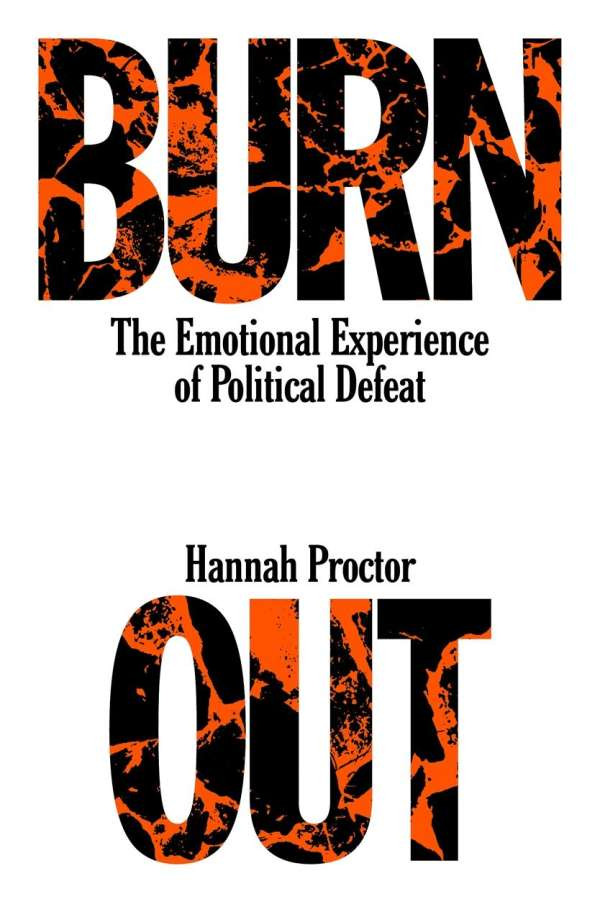Burn Out: Documenting and Dealing with Defeat with Hannah Proctor
Ticket(s)
Event Details

*for every revolutionary must at last will his own destruction rooted as he is in the past he sets out to destroy
– Diane di Prima
People formed by their experiences in this world are likely to find it difficult to act as if they were formed by a different one, but rejecting the possibility of individual transformation is tantamount to claiming that all social transformation is impossible. But how much and how quickly can people change?
Drawing from her new book Burnout: The Emotional Experience of Political Defeat, in this talk Hannah Proctor will explore the relationship between the personal and the political through a discussion of histories of self-criticism and consciousness raising practices developed within revolutionary movements. Unlike conventional therapy these left-wing small group methods were more concerned with transforming external reality than with healing the psyche but they sometimes ended up impeding the struggles they had been designed to further by increasing interpersonal tensions within groups and creating their own psychic wounds.
Building on Burnout's themes, in the second part of the session there will be a chance to look through some materials from the MayDay Rooms archive, which document defeats and explore different ways of dealing with it. This will include material about the anti-psychiatry movement, consciousness-raising groups, internal discussion bulletins, self-critical analysis of political defeats, and more. What does it mean to archive political defeat in an era when the left is encountering mounting losses?
Hannah’s new book* Burnout: The Emotional Experience of Political Defeat *is out with Verso on 9th April and the launch will be at Peer Gallery on the 10th. Details below:
https://www.versobooks.com/en-gb/products/970-burnout
Hannah Proctor holds a Wellcome Trust University Award at the Centre for the Social History of Health and Health Care at the University of Strathclyde in Glasgow. She is a member of the Radical Philosophy editorial collective and has been published in Tribune, Another Gaze, Jacobin, eflux,The New Inquiry and elsewhere.
